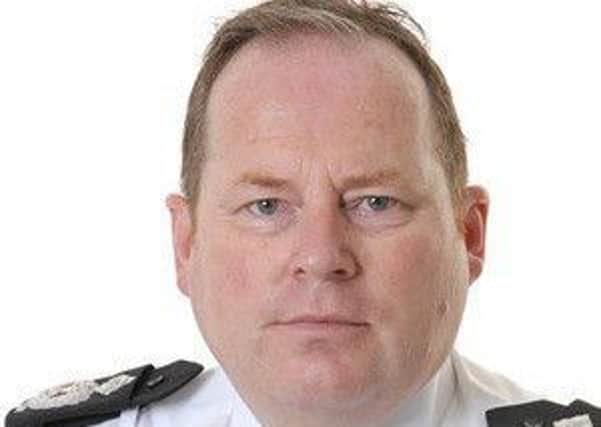Lincolnshire Deputy Chief Constable says number of incidents requiring use of force demonstrates the difficult situations his officers face daily


The first statistics of their kind in the country issued under the new Home Office drive to make this information more public have shown that in the three months between April and June, Lincolnshire officers reported 1,572 instances where they had to use force to restrain an individual and on 64 occasions officers suffered injuries - five of them needing hospital treatment.
But Deputy Chief Constable Craig Naylor said: “The figures show the difficulties the officers have with the circumstances in front of them.”
Advertisement
Hide AdAdvertisement
Hide AdHe qualified the use of ‘force’ as being anything from laying hands on the individual to detain them right up to most difficult situations involving firearms officers being deployed.
There were 91 cases that involved the “use” of a Taser, but he said that ranged from simply drawing the non-lethal weapon to actually firing it. He said: “It is often used as a deterrent and drawing a taser and shouting a warning can often be enough to stop a situation. Officers being trained to use a quite significant piece of kit allows officers to keep themselves and the public safer.”
On the matter of 64 officers said to have been injured during a use of force he said the majority were merely bruises and scrapes that were reported on a daily basis but officers still carried on with their shifts, but he also made sure those that needed treated did receive it.
There were 107 cases where under 18s were involved, but the Deputy Chief Constable said: “Rather than children, that age range can be anything up to just under 18 years and we can be dealing with some that have been drinking and even a young person who has been drinking can be quite violent at times.
Advertisement
Hide AdAdvertisement
Hide Ad“There are all sorts of incidents which our officers face and they are trained in using an appropriate level of force to deal with that event. Even a compliant handcuffing would be recorded as a use of force.”
The two greatest aggravating factors requiring force were listed as drink and drugs and the Deputy Chief Constable said it was about minimising harm to people in the community. He said his officers walk towards danger and deal with whatever they encounter. “Do we want to reduce influence of alcohol and drugs? Of course we do,” he said, adding that required work with partners to educate and encourage people to take care of themselves and their families by gaining better life skills.
The force usually sees an upsurge in alcohol-related incidents on the Lincolnshire coast due to the influx of tourists and day-trippers and they always try to provide additional manpower and support to address that.
He wanted to assured residents that officers are trained to a high level to be proportionate in their handling of suspects, including verbal skills to diffuse a situation, right up to tactics for using a taser and firearms. He said: “They do not jump in to use force and have a clear rationale and now have to record the reasons for that.
Advertisement
Hide AdAdvertisement
Hide Ad“we have had nearly 44,000 incidents recorded and used force in 1,500 times. We are not a violent force and not in any way misusing force when going about our business. It is important we consider how we treat the public we are serving.”